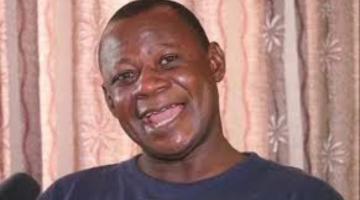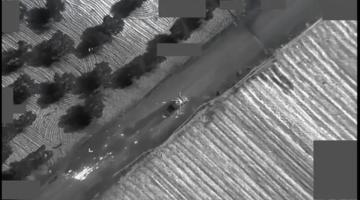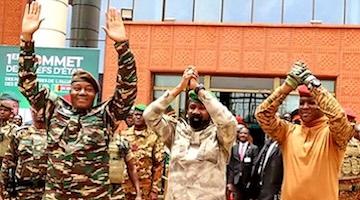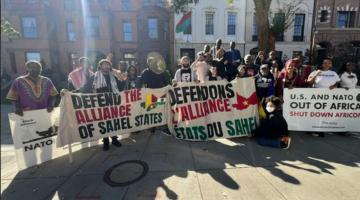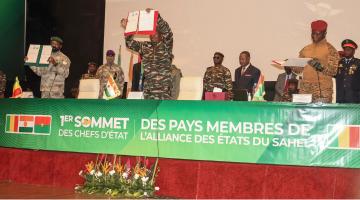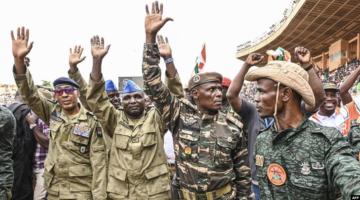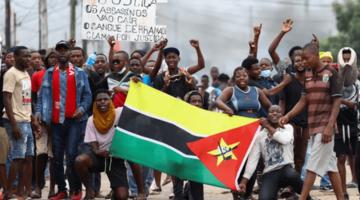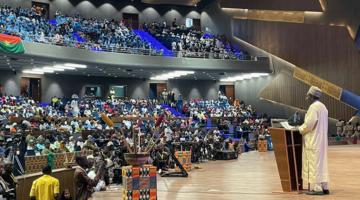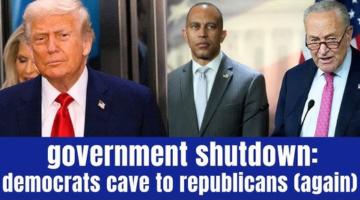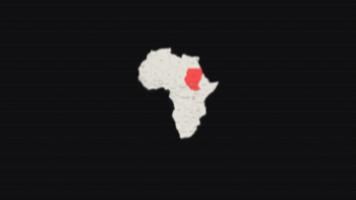Reports of the downsizing of Pentagon troops in Chad comes as the United States continues to delay departure from Niger.
Originally published in Fighting Words.
$95 billion in supplemental defense spending aimed at furthering the interests of the United States in various geopolitical regions of the world was recently passed by the legislative branches of the government.
These actions speak volumes on the actual priorities of Congress and the administration of President Joe Biden.
During the course of the first Biden administration, the Congress failed to pass pieces of legislation which were promised during the 2020 presidential campaign such as the George Floyd Justice in Policing Act, the John Lewis Voting Rights Act, among many others. Inflation remains a serious problem for working and oppressed peoples even though the White House is praising its economic agenda which has left tens of millions locked in poverty and social deprivation.
However, the foreign policy of the administration has been clearly focused upon continuing the wars in Ukraine against Russia; the bolstering of the Israeli state against the Palestinians and other peoples in the region; heightening the provocations against the People’s Republic of China, etc., in which trillions have been taken from taxpayers and their communities in the U.S. The wars of occupation and aggression over the last three decades have been costly for the working class and oppressed domestically and around the world.
In recent months the Republic of the Niger in the Sahel has demanded the withdrawal of all U.S. military forces from its territory declaring previously existing military agreements null and void. Since July 26, 2023, the National Council for the Safeguard of the Homeland (CNSP) government has shifted the foreign policy orientation of the military from Paris and Washington toward Moscow.
Now in Chad where both France and the U.S. have maintained a decades-long military presence, there are reports of a partial withdrawal of foreign troops. Chad’s former military turned civilian leader, Idriss Deby Itno, who was reportedly killed three years ago in clashes with rebel forces, was a close ally of Paris and Washington.
At present, Idriss Mahamat Deby Itno, the son of the former leader, who took power in contravention of the Chadian constitution in 2021, has questioned the ongoing security arrangements with France and the U.S. Several states throughout the Sahel region of West Africa, particularly Burkina Faso, Mali and Niger, have broken with the Economic Community of West African States (ECOWAS) and established their own Alliance of Sahel States.
All of these states have been plagued with rebels claiming to be “Islamist” with connections to Al-Qaeda and ISIS. Historically, these groupings have their origins within U.S. intelligence operations designed to maintain hegemony in Asia and Africa.
AFRICOM and Insecurity
The U.S. Africa Command (AFRICOM) formed and deployed in early 2008, has said over the last 16 years that they are on the continent to halt “terrorism” and to enhance the security capacity of individual states. However, since the formation of AFRICOM, the security situation in Africa has worsened substantially.
In West African states such as Mali, Guinea, Niger and Guinea-Conakry, those military officers associated with the recent coups were trained in U.S. War Colleges. Many have participated in training operations such as “Operation FlintLock” alongside Pentagon troops and their leadership.
Despite the billions of dollars spent on AFRICOM over the last decade-and-a-half, many of these same African military officers trained and groomed by imperialism have turned against France and the U.S. The anti-western political mood in several African states is occurring amid other geopolitical crises. The Russian Special Military Operation in Ukraine has brought to the fore foreign policy differences between Washington and NATO on the one side and the African Union member-states on the other.
Moreover, the genocidal war waged by the State of Israel against the Palestinians in Gaza and other areas of the Occupied Territories, has drawn condemnation from most governments throughout the African continent. The Republic of South Africa has filed a lawsuit against the Zionist state charging it with genocide.
Since the beginning of the Al-Aqsa Storm on October 7, the U.S. has consistently reaffirmed its support for the settler-colonial regime in Palestine. The Biden administration vetoed numerous United Nations Security Council resolutions demanding a ceasefire and the unimpeded flow of humanitarian assistance to the people of Gaza.
AFRICOM has proved to be an unmitigated disaster for the people of Africa. In Libya, where the first full-fledged AFRICOM project was carried out in 2011, the once most prosperous state on the continent led by Pan-Africanist revolutionary and statesman, Col. Muammar Gaddafi, has reduced the oil-rich country to the level of mass impoverishment and balkanization. Several UN envoys to Libya have failed in efforts to hold national multi-party elections aimed at forming a unified government in Tripoli.
Consequently, the military and civilian administrations in Africa would be well served by breaking military ties with AFRICOM and the French Foreign Legion. Through the AU, whose charter mandates the formation of a continental military peacekeeping force, African states would be much more secure by providing their own mechanisms to resolve internal and external security threats.
The Significance of Chad
Since the early 1980s, the U.S. and France have expended enormous resources on securing Chad for the interests of imperialism. Chad and Niger were considered as key stalwarts in the purported “anti-terrorism” campaigns in West Africa.
Chad and Niger are both endowed with uranium. Chad has oil resources as well making the countries important economically and strategically.
Over the last two decades, trade and security relations have grown involving AU member-states, the People’s Republic of China and the Russian Federation. At present the tactics utilized by Washington and Paris are only prompting greater resentment and alienation from broad sectors of the populations in Chad and other Sahel states.
With specific reference to Chad, the Pentagon says that it was completely “blindsided” by a letter sent to the U.S. from the government in N’djamena. As they have done in Niger, Washington is seeking ways to renegotiate military agreements which will allow the AFRICOM troops to remain within the African states.
According to an article published by the Associated Press on April 25:
“The U.S. will relocate most of the approximately 100 forces it has deployed in Chad for now, Pentagon press secretary Maj. Gen. Pat Ryder said Thursday at a press briefing. ‘As talks continue with Chadian officials, U.S. AFRICOM is currently planning to reposition some U.S. military forces from Chad, some portions of which were already scheduled to depart. This is a temporary step as part of the ongoing review of our security cooperation, which will resume after Chad’s May 6th presidential election,’ Ryder said.”
Another report published in the New York Times on the same day points out that:
“The impending departure of the U.S. military advisers from Chad, a sprawling desert nation at the crossroads of the continent, was prompted by a letter from the Chadian government this month that the United States saw as threatening to end an important security agreement with Washington. The letter was sent to the American defense attaché and did not directly order the U.S. military to leave Chad, but it did single out a Special Operations task force that operates from a Chadian military base in the capital and serves as an important hub for coordinating U.S. military training and advising missions in the region.”
As in the geopolitical regions of Eastern Europe, West Asia and the Asia-Pacific, the U.S. and its allies are attempting to counter the influence of Iran, China and Russia on the African continent. Security advisors from Russia are already operating in Mali, the Central African Republic, Niger and other states. Economic and political ties between African states and China have been increasing for decades.
The AU member-states are sovereign entities and therefore have the inherent right to determine their own destinies. These states must move towards establishing their own independent foreign policies in dealing with the imperialist centers of military and economic power.
Abayomi Azikiwe is the Editor of Pan-African News Wire.

